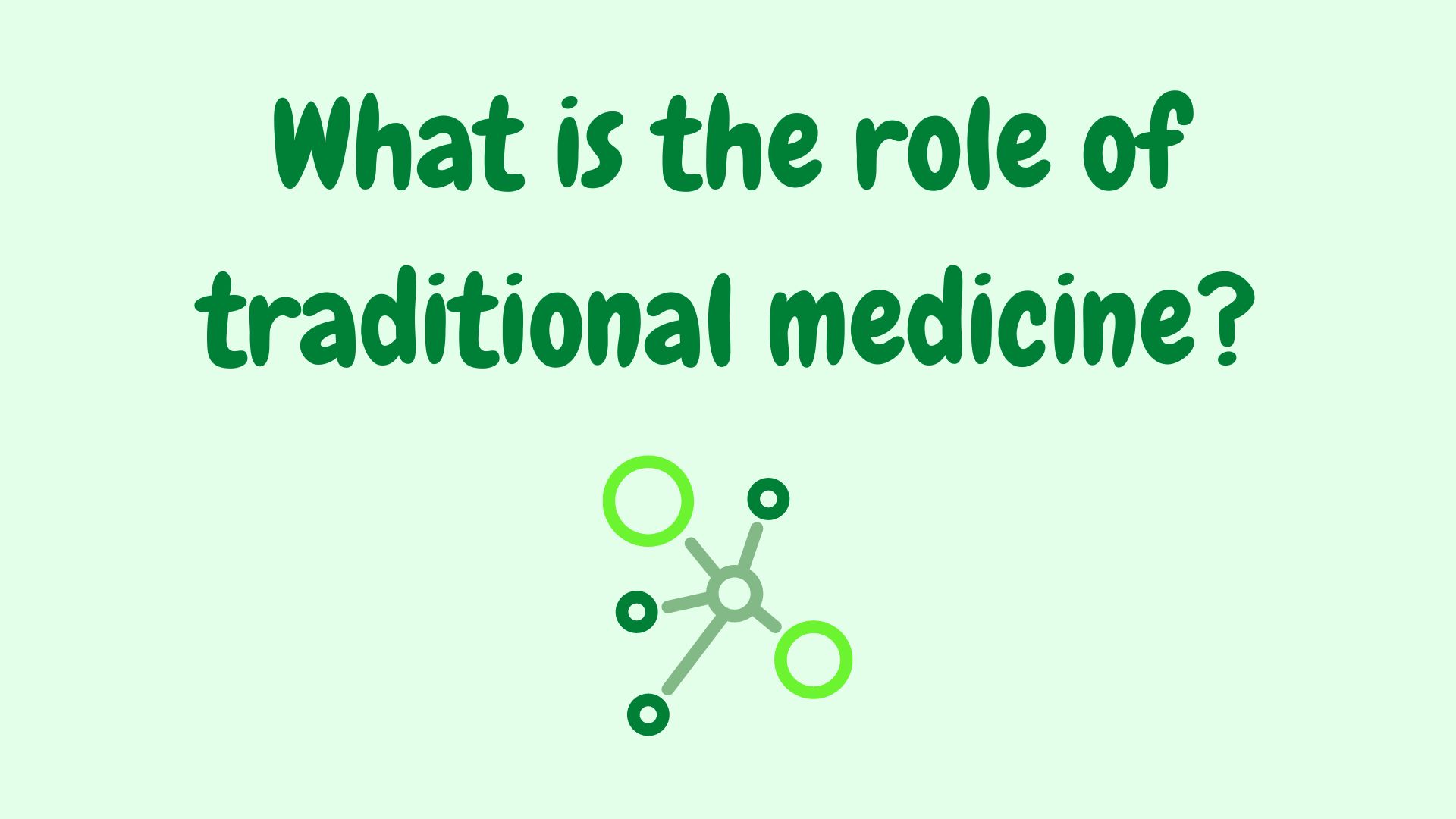In the African continent it is estimated that about 50% of the population has access to healthcare, of which 80% relies on traditional medicine. Making the role of traditional medicine an integral one in society. Admittedly, there are a number of concerns and challenges related to traditional medicine, such as the rationale behind it, the effectiveness of the employed health practices and methods, safety and regulation, and intellectual property rights that must be addressed before it is accepted as a source of mainstream health care.
The role of traditional medicine is often undermined as it is considered primitive and reserved for the poor and uneducated members of society. The following outlines some of the key roles of traditional medicine:
- Traditional medicine is an important source of human health care
The World Health Organisation (WHO) reports that one third of the world’s population has no regular access to essential modern medicine. In developing countries, modern medicine is inaccessible to most of the population due to the high cost and the lack of resources and facilities:
- In most countries, particularly developing countries, private healthcare is the best healthcare. This is due to the inadequate financing by the government. However, private healthcare is very costly for the average person. As a result, most of the population turns to traditional medicine as it the most affordable form of healthcare.
- Over time the inadequate public health care financing by the government has led to the lack of resources (such as staff and medical equipment) and facilities (such as clinics and hospitals). For example, in the rural areas clinics are sparse and usually far away, not to mention short-staffed and under-resourced. So, most people in the rural areas turn to traditional medicine as a source of primary healthcare.
- Traditional medicine products and services are a source of income
Traditional medicine practitioners earn a living from selling traditional medicine products and services. Both the products and services produced sold by traditional medicine practitioners are not approved by the South African Health Products Regulatory Authority (SAHPRA). The products include ointments, essential oils, animal fats, tonics, snuffs, mineral-based medicine, animal-based medicine, and plant-based medicine. The list also includes paraphernalia that is used for acupuncture, scarification, enema, etc.
The role of a practitioner in a community is not just limited to curing diseases but it also encompasses counseling, mediation, spiritual protection and intercession, and educators of customs, culture, and religion. The role of a practitioner will vary depending on the type or category. In general, there are three categories of practitioners in South Africa, namely, umthandazeli (faith healer), inyanga (herbalist), and isangoma (diviner).
- Traditional medicine products can be food and a source of nutrition
Certain traditional medicine products can be administered as both medicine and food. For example, Bidens pilosa leaves can be used to make poultice to treat ringworms and be eaten as a leafy green. The leaves, roots, corms, stem, flowers, fruits, and seeds of various plants can be administered as both food and medicine. Food is a basic need for the survival of human life. In some regions of the world there is severe food shortage and in such places you typically find famine food (or poverty food), which are plants consumed during periods of lack or war or natural disasters. Famine food are plant parts that are used for medicine but due to unforeseen circumstances are eaten as food.
Plants that are used as medicine are consumed as food when they are delicious (taste good) and nutritious (full of nutrients). To avoid wastage, edible plants that are not used as medicine, are eaten as food.
Plants that are used for medicine are also used make edible oils for cooking. For example, Ricinus communis seeds are used to make castor oil that is taken as a mild laxative and administered to treat constipation. The oil is also used as edible cooking oil.
- Modern medicine draws upon traditional medicine
Most modern medicine drugs, such as artemisinin, quinine, and salicylic acid, were discovered using indigenous knowledge. NAtural PRoducts ALERT (NAPRALERT®), a relational database of natural products at the University of Illinois, Chicago, reports that about 74% of the modern drugs derived from plants were developed using knowledge obtained from traditional medicine. Addedly, the applications of the developed drugs are the same as those in traditional medicine.
In conclusion, quality health care is key to preventing diseases and improving the span and quality of human life. Addressing the issues and concerns related to traditional medicine is one way of helping to ensure quality healthcare for all, if not most members of society.
Further reading and research:
- F̀reeman, M. and Motsei, M., 1992. Planning health care in South Africa—is there a role for traditional healers?. Social science & medicine, 34(11), pp.1183-1190.
- Goswami, H.K. and Ram, H.K., 2017. Ancient Food Habits Dictate that Food Can Be Medicine but Medicine Cannot Be “Food”!! —“Food is the substance digested by an individual to suppress the basic vital instinct of hunger”(HKG). Medicines, 4(4), p.82.
- Iwu, M.M. and Gbodossou, E., 2000. The role of traditional medicine. The Lancet, 356, p.S3.
- Oliver, S.J., 2013. The role of traditional medicine practice in primary health care within Aboriginal Australia: a review of the literature. Journal of ethnobiology and ethnomedicine, 9, pp.1-8.
- Payyappallimana, U., 2010. Role of traditional medicine in primary health care. Yokohama Journal of Social Sciences, 14(6), pp.57-75.
- Zhang, X., 2004. Traditional medicine: its importance and protection. Protecting and promoting traditional knowledge: systems, national experiences and international dimensions. Part, 1, pp.3-6.
- Zuma, T., Wight, D., Rochat, T. and Moshabela, M., 2016. The role of traditional health practitioners in Rural KwaZulu-Natal, South Africa: generic or mode specific?. BMC complementary and alternative medicine, 16(1), pp.1-13.
